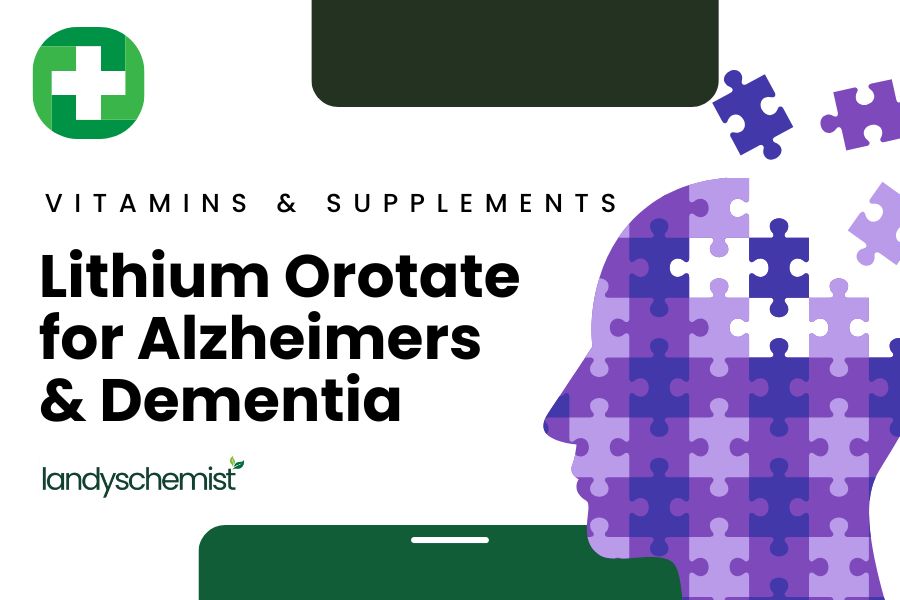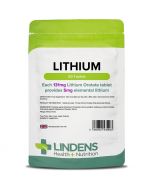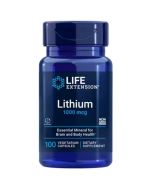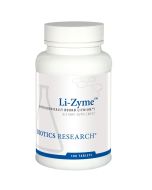
The Link Between Lithium Deficiency and Alzheimer’s Disease
A new Nature paper published on 6 August 2025 reports that restoring low brain lithium with lithium orotate protected against, and even reversed, memory loss in Alzheimer’s-model mice. The news article summarising the work is here, and the open-access research article is here. Early human brain analyses in the same study also showed lower lithium in affected regions and lithium getting trapped inside amyloid plaques. This is promising science in animals, not proof in people.
Lithium is a naturally occurring mineral and trace element that plays a role in brain health and mood regulation, and at higher doses it is used medically to treat bipolar disorder. Read more here: Benefits of Lithium Orotate

What did the lithium Alzheimer’s study find?
- Brain samples from people with mild cognitive impairment and Alzheimer’s showed much lower lithium levels in the affected regions. Lithium was also found trapped inside amyloid plaques, making less available for normal brain function.
- In mice, a lithium-deficient diet led to faster build-up of amyloid plaques and tau tangles, along with worsening memory and thinking problems.
- When treated with lithium orotate, the Alzheimer’s-model mice not only stopped deteriorating but actually recovered memory and healthier brain structure, even at low doses.
- These results are still preclinical. So far, no human trial has proven that lithium orotate can treat or prevent Alzheimer’s disease.
Is lithium deficiency linked to Alzheimer’s disease?
The researchers tested 27 different metals in human brain tissue. They found that only lithium was consistently lower in the brains of people with mild cognitive impairment and Alzheimer’s. This drop was seen in the prefrontal cortex, the part of the brain important for memory and decision-making, but not in the cerebellum, which is usually less affected by the disease. They also discovered that lithium often became trapped inside amyloid plaques, leaving less available for healthy brain cells. Importantly, people with lower lithium outside these plaques tended to have worse memory test scores.
Why are scientists studying lithium orotate for Alzheimer’s?
Because amyloid plaques can trap certain forms of lithium, the researchers compared different types of lithium salts. They chose lithium orotate because it was less likely to get stuck in plaques. In Alzheimer’s-model mice, lithium orotate was able to avoid plaque trapping and instead restore lithium to healthy brain tissue. This treatment reduced amyloid build-up and tau tangles, lowered brain inflammation, and even helped the mice regain memory skills in maze tests. Remarkably, these benefits were also seen in older mice that already had signs of Alzheimer’s disease.
What do human studies say about lithium and dementia risk?
Observational studies suggest that long-term lithium treatment, usually in the form of lithium carbonate prescribed for bipolar disorder, may be linked to a lower risk of dementia. For example, a large Danish registry study found that patients who stayed on lithium had dementia rates close to the general population, while those who only tried lithium once showed a higher risk. Other population studies have also reported that areas with more lithium in drinking water tend to have lower dementia rates, although this does not prove cause and effect.

Should you take lithium orotate for Alzheimer’s prevention?
The evidence is promising but still preclinical. Here’s what you need to know:
- The Nature study was in mice, not humans. It shows a possible mechanism, but does not prove lithium orotate prevents or reverses Alzheimer’s in people.
- No human clinical trials have yet confirmed the safety, correct dose, or effectiveness of lithium orotate for Alzheimer’s.
- Lithium in medical doses (such as lithium carbonate for bipolar disorder) can affect kidney and thyroid function and may interact with common medicines.
- Any use of lithium should only be done under medical supervision. Self-treatment is not advised.
- Current anti-amyloid monoclonal antibodies, used in early Alzheimer’s, can slow decline but do not reverse the disease. This makes the mouse results interesting, but still very early.
Pharmacist advice on lithium orotate and Alzheimer’s disease
“This is an exciting laboratory step, but not a green light for the public. Do not start lithium on your own. If you have concerns about memory or are interested in research participation, speak to your GP or a specialist first.” Girish Desai, Pharmacist, Landys Chemist (Credentials: GPhC-registered pharmacist)
Shop all Lithium Orotate Supplements here
Sources:
- Lithium deficiency and the onset of Alzheimer’s disease | Nature
- New hope for Alzheimer’s: lithium supplement reverses memory loss in mice
- Lithium treatment and risk of dementia - PubMed
- Association of Lithium in Drinking Water With the Incidence of Dementia - PMC
Medically Reviewed & Authored By
This article was medically reviewed by Girish Desai, Chief Pharmacist at Landys Chemist since 1982 (GPhC Reg. No. 2019217).
Written and compiled by Rhysa Phommachanh, Head of Digital at Landys Chemist and specialist in health and wellbeing content strategy.
Disclaimer: This content is grounded in research and expert pharmacy and nutrition knowledge to ensure accuracy and relevance.








